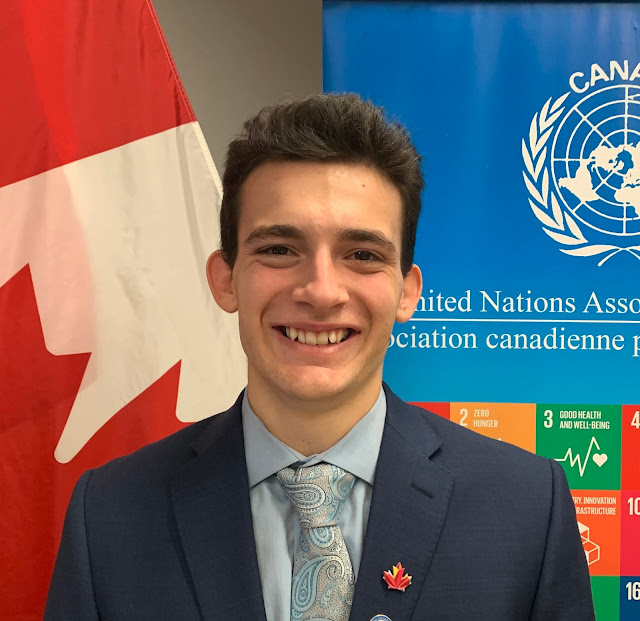Nafisa Abdul Razak's Journey at UNDP Kosovo: Blog Post #2
Written by Nafisa Abdul Razak
The
privilege of being able to undertake an unpaid international (or even an unpaid
local) internship is still very much a Western, developed country and a wealthy
family phenomenon. Individuals from developing countries, and from
disadvantaged or marginalized circumstances, still cannot afford to undertake
such endeavours. This is a problematic issue, in my opinion, because it manages
to give more opportunities to the “haves”, the individuals from more privileged
situations and countries, and effectively manages to bar a good range of
“have-nots”, individuals from lesser privileged situations, from engaging in
international work such as the work of the United Nations (UN). Yet, the
inclusion of people from developing countries and disadvantaged situations is
quite essential in civil society organizations and international organizations
such as the UN. Without proper inclusion of people from developing countries,
and of disadvantaged and marginalized individuals, the UN may be missing out on
different and crucial voices, perspectives, and ideas that are oh-so-important
for the type of work and projects we undertake. For example, in Kosovo, many of
our projects places much importance on helping more youth and ethnic
minorities. However, most of the people designing and implementing the projects
were not youth nor ethnic minorities. While disadvantaged populations are
always consulted about issues in their communities and how they would like to
resolve it, they still struggle to qualify to work in jobs that can involve
them more directly with issues that concern their communities.
We
must also consider the educational factor of being able to work in
organizations such as the UN. An individual needs to demonstrate quite a bit of
educational attainment or have extraordinary work experience in order to
qualify even for unpaid internships these days. This effectively manages to
limit so many individuals in developing countries or individuals that come from
disadvantaged and marginalized communities from partaking in internship
opportunities they may be interested in because their educational attainment
and their work and life experiences may not be deemed to be as worthy as the
educational/work experience of more privileged individuals who went to,
perhaps, more esteemed and world-recognized institutions and may have been able
to afford many more years of education compared to many underprivileged
individuals.
Most
of us unpaid interns at the UNDP office in Kosovo (I am speaking from my
personal experience here so I cannot speak for other UNDP offices) were from
North America, Europe, or Australia. We came from relatively comfortable
financial situations that allowed us to live in a foreign country for long
periods of time without an income. We have to acknowledge the privilege we have
to be able to say “Yes, I can” to unpaid opportunities such as this. The UN,
and many such similar organizations, at the end of the day, are a whole lot more
accessible to people from Western and developed countries compared to others.
But this runs the risk of further turning the UN into an imperialist
institution where Western “saviours” are essentially going into developing, and
war- or conflict-stricken countries, to help them in paternalistic ways, and
this is a problem because we are not adequately addressing the root causes of
the issues that run rampant in these countries and are only exercising our
saviour-complex without actually considering the situation of locals and how to
truly improve it. The UNDP does have job opportunities open for locals for
certain positions (its paid positions, thankfully). And this is great. However,
it is quite unlikely that the local individuals hired could undertake unpaid
internships in foreign countries, they just wouldn’t be able to easily afford
that.
The
UN is a worldly influential organization that is situated around the world, that
helps disadvantaged and marginalized populations. And it is a sough after
organization which is why it is understandable that it has unpaid internship
opportunities. However, there are many problematic aspects to this organization
as well which must be addressed for it to continue to be successful in its future
endeavours. We must acknowledge the privilege of individuals that are able to
undertake unpaid internships and realize it further widens the inequality of
opportunities between the haves and the have-nots in society.


Comments
Post a Comment